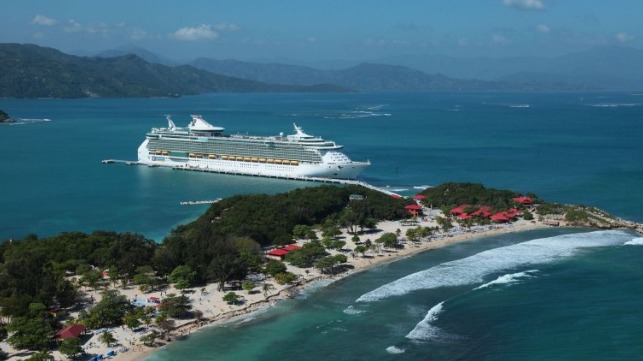Cruise Leaders Highlight Sustainability Efforts
September 30, 2021 Maritime Safety News

As the United Nations marks “Climate Week,” meant to focus attention on the global challenges, companies from across the cruise industry are highlighting their efforts to contribute to the shipping industry’s goal to reduce its emissions and enhance sustainability. Royal Caribbean Group published its annual sustainability report, providing a comprehensive update on the company’s efforts, while the cruise division of MSC Group reaffirmed its commitment to sustainability by pledging to achieve net-zero greenhouse gas emissions in its cruise marine operation by 2050.
MSC highlighted that it has signed the Getting to Zero Coalition’s Call to Action to accelerate the decarbonization of the overall shipping sector. The Call to Action includes three elements, including setting a target for zero-emission shipping by 2050, deploying commercially viable zero-emission vessels by 2030, and joint action by the private and public sectors. The Call to Action will be delivered to world governments in November 2021, in advance of COP26.
MSC’s cruise operations said they have been focused on reducing GHG emissions intensity through the introduction of energy efficiency and operational improvement measures across its fleet. Having introduced an annual efficiency improvement of two to four percent across the fleet, by 2019 the company reports it had achieved a 28 percent efficiency improvement compared to 2008. MSC says it is well on track to meeting the IMO’s 2030 40 percent intensity reduction target.
Beyond the efforts on its current ships, MSC also highlights a range of initiatives it is participating in to contribute to future solutions. The MSC Cruise Division recently entered into a partnership with Fincantieri and energy infrastructure company Snam to determine the conditions for the design and construction of what could become the world’s first oceangoing hybrid hydrogen/LNG-powered cruise ship. MSC has ordered three LNG-fueled cruise ships and with Chantiers de l’Atlantique is exploring the integration of a Solid Oxide Fuel Cell (SOFC) technology on LNG-powered cruise ships. In a consortium with GE Power Conversion, Lloyd’s Register, and Ceres Power Holdings they are exploring the barriers to the adoption of fuel cells in large ship applications as well as other efforts to identify progressive energy technologies and innovative ship design.
“We believe that what gets measured gets better. Sustainability is a core area for our business,” said Richard Fain, Chairman and CEO, Royal Caribbean Group unveiling the company’s report card on itself. “While I’m proud of the progress we have achieved, the importance of this area has grown exponentially. Consistent with our mantra of continuous improvement, we have significantly expanded our aspirations in this critical area and are setting even more aggressive goals for the coming years.”
Royal Caribbean Group reports it achieved its carbon reduction target of 35 percent by 2020 in part through its sponsorship of a wind farm project in Kansas that is expected to offset up to 12 percent of the company’s global emissions each year. The group recently introduced the new Celebrity Apex with shore power connectivity and with an energy efficiency standard (EEDI) 39 percent more efficient than the current IMO requirement. Royal Caribbean’s next class of ships expected to launch in 2023, will use liquefied natural gas and fuel cell technology.
The Royal Caribbean Group committed to further reduce emissions 25 percent by 2025. In addition to its efforts of emissions, the company also highlighted efforts in sustainable sourcing, reducing waste, and water management. The company reported that it has met or exceeded nearly all of its 2020 sustainability targets.
SOURCE READ THE FULL ARTICLE
https://www.maritime-executive.com/article/cruise-leaders-highlight-sustainability-efforts





